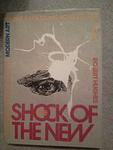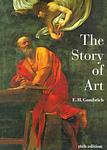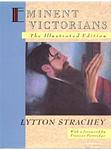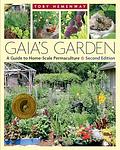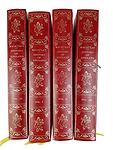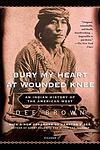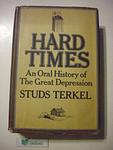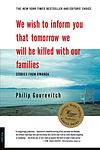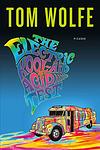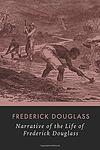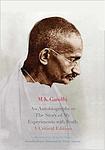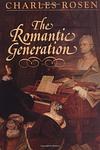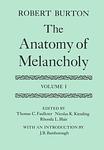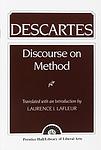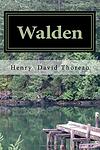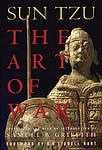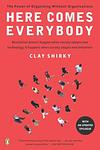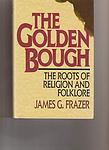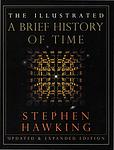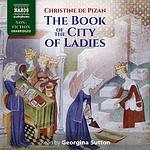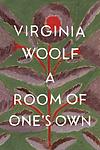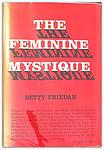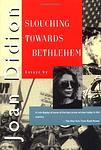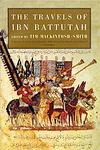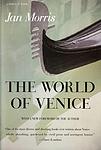The 100 Greatest Non-Fiction Books
This is one of the 291 lists we use to generate our main The Greatest Books list.
-
The Shock of the New by Robert Hughes
"The Shock of the New" is an insightful exploration of modern art from the late 19th century to the present day. The book examines the cultural, social, and political forces that shaped and influenced the development of various art movements such as Cubism, Futurism, Surrealism, and Pop Art. It also provides an in-depth analysis of the works of prominent artists who played pivotal roles in these movements. The book serves as a comprehensive guide to understanding the complexities and nuances of modern art.
-
The Story of Art by E. H. Gombrich
"The Story of Art" is a comprehensive guide to the history of art, covering a vast span of time from prehistoric art to contemporary movements. The book provides insights into the cultural, historical, and social contexts that have influenced the creation of art throughout various periods. It offers detailed analysis of major works and styles, and discusses the techniques used by artists from different eras. It is not only an exploration of the evolution of art but also an attempt to understand the motivations and inspirations of the artists behind the works.
-
Ways Of Seeing by John Berger
This book is a seminal work of art criticism that challenges traditional Western cultural aesthetics by examining the ways in which we culturally learn to view art, particularly the impact of modern mass-reproduction on our experience of seeing. The author argues that the context, or "gaze," through which we perceive art significantly affects its meaning and our appreciation of it. The book also explores the portrayal of women in art and society, the relationship between art and ownership, and the connection between historical context and visual perception. It is a provocative critique that encourages readers to reconsider the role of visual imagery in our everyday lives and the power structures inherent in the act of looking.
-
Lives of the Artists by Giorgio Vasari
"Lives of the Artists" is a comprehensive collection of biographies of the most significant Italian artists from the 13th to the 16th centuries. The book provides a detailed overview of the artists' lives, their works, and their contributions to the art world. It includes the biographies of renowned artists like Leonardo da Vinci, Michelangelo, and Raphael, among others. The author's personal acquaintance with some of these artists lends a unique perspective, making the book a valuable historical document.
-
The Life of Samuel Johnson by James Boswell
"The Life of Samuel Johnson" is a comprehensive biography that chronicles the life of one of the most prominent English literary figures of the 18th century. The book provides an in-depth account of Samuel Johnson's life, his literary works, and his significant contribution to English literature. It also offers a detailed portrait of his personality, his relationships, his struggles with depression and illness, and his views on a variety of subjects. The book is as much a biography of Johnson as it is a portrayal of 18th-century England.
-
The Diary of Samuel Pepys by Samuel Pepys
"The Diary of Samuel Pepys" is a detailed personal account written by a 17th-century English naval administrator and Member of Parliament. The diary offers an intimate look at life in London during a time of great historical significance, including the Great Fire of London, the Great Plague of London, and the Second Dutch War. Pepys' entries provide keen observations on politics, social customs, and personal relationships, making it an invaluable primary source for understanding the period.
-
Eminent Victorians by Lytton Strachey
"Eminent Victorians" is a biographical work that profiles four influential figures from the Victorian era. The book provides an in-depth look into the lives of Cardinal Manning, Florence Nightingale, Thomas Arnold, and General Gordon, exploring their respective contributions to British society during the 19th century. Through these portraits, the book offers a critical and often satirical analysis of Victorian values, institutions, and moral attitudes, challenging the idealized narrative of the era.
-
Good-Bye to All That by Robert Graves
This memoir provides a candid and unflinching look at the horrors of World War I, as experienced by a young British officer. The narrative explores the brutality and futility of war, the author's struggle with shell shock, his disillusionment with the military and British society, and his decision to leave England for a new life abroad. It also offers insights into the author's personal life, including his troubled marriage and his relationships with other prominent figures of the time.
-
The Autobiography of Alice B. Toklas by Gertrude Stein
This book is an innovative and unconventional autobiography, penned from the perspective of the author's life partner, providing an intimate view into the lives of the Parisian avant-garde in the early 20th century. It offers a personal account of their life together, filled with anecdotes of their interactions with famous figures such as Picasso, Matisse, and Hemingway. The narrative also delves into the author's own thoughts and experiences, creating a unique blend of biography, autobiography, and personal memoir.
-
Against Interpretation by Susan Sontag
This book is a collection of essays that challenge the traditional methods of interpretation and criticism of art and culture. The author argues that in our attempt to interpret and find deeper meaning, we often overlook the sensory experience of the work itself. The book encourages readers to experience art in its raw form, focusing on the form, color, and sounds, rather than trying to decipher a hidden meaning. It is a call for a new, more direct approach to consuming art and culture.
-
Mythologies by Roland Barthes
This book is a collection of essays that explore the layers of cultural and societal meanings that are imbued in everyday objects, activities, and phenomena. The author decodes the symbols and signs embedded in things as varied as wrestling, soap detergents, toys, and even the face of Greta Garbo. The book is a pioneering exploration of semiotics, the study of signs and symbols, and it challenges readers to question and understand the cultural connotations and ideologies that are presented as natural or given in our everyday lives.
-
Orientalism by Edward W. Said
This book is a critical examination of Western attitudes towards the East, particularly the Middle East, and how these attitudes have shaped and continue to shape Western policies and perceptions. The author argues that the West has a long history of viewing the East as the "other," exotic and inferior, and that this view has been institutionalized through academic disciplines, literature, and media. This "Orientalism," as the author calls it, has served to justify colonialism and imperialism, and continues to influence Western attitudes and policies towards the East today.
-
Silent Spring by Rachel Carson
This influential environmental science book presents a detailed and passionate argument against the overuse of pesticides in the mid-20th century. The author meticulously describes the harmful effects of these chemicals on the environment, particularly on birds, hence the metaphor of a 'silent spring' without bird song. The book played a significant role in advancing the global environmental movement and led to a nationwide ban on DDT and other pesticides in the United States.
-
Gaia by James Lovelock
The book presents a groundbreaking hypothesis that redefines Earth as a self-regulating system, where the biosphere, atmosphere, oceans, and soil function as a single living organism. This entity, named after the Greek goddess of Earth, maintains the conditions necessary for life through complex interactions among its components. The author, an independent scientist, argues that life on Earth actively shapes the environment for its own survival, challenging traditional views of the relationship between organisms and their habitat. The work has sparked widespread debate and research, influencing fields from biology to environmental science, and has profound implications for our understanding of life on Earth and how we approach environmental stewardship.
-
The Histories of Herodotus by Herodotus
"The Histories of Herodotus" is an ancient text that provides a comprehensive account of the Greco-Persian Wars. It is often considered the first work of history in Western literature. The author, often referred to as the 'Father of History', provides a narrative that not only discusses the conflicts between the Greeks and Persians, but also delves into the customs, geography, and history of each civilization. This detailed and pioneering work has greatly contributed to our understanding of the ancient world.
-
The Decline and Fall of the Roman Empire by Edward Gibbon
This historical work provides a comprehensive perspective on the fall of the Roman Empire, examining its decline from the height of its power in the second century A.D. through the fall of Constantinople in 1453. The author meticulously chronicles the empire's deterioration due to a variety of factors, including moral decay, economic crisis, military incompetence, barbarian invasions, and internal power struggles, while also offering insightful commentary on the broader implications for Western civilization.
-
The History Of England by Thomas Babington Macaulay
This book provides a detailed examination of English history from the accession of James I to the Glorious Revolution of 1688. The narrative is known for its vivid portrayal of key figures and events, as well as its engaging, eloquent prose. The author emphasizes the development of constitutional law and government, the interaction between monarchs and Parliament, and the cultural evolution of the nation. While celebrated for its literary style and depth of detail, the work also reflects the author's particular biases, presenting a Whig interpretation of history that champions progress and reform.
-
Eichmann in Jerusalem: A Report on the Banality of Evil by Hannah Arendt
This book is a thought-provoking exploration of the trial of Adolf Eichmann, a major organizer of the Holocaust. The author argues that Eichmann was not a fanatical ideologue, but rather an ordinary individual who simply followed orders and bureaucratic procedures, highlighting the terrifying potential for evil in any system that values obedience over personal responsibility. The concept of the "banality of evil" is introduced, suggesting that horrific acts can be committed by ordinary people under certain conditions.
-
The Making of the English Working Class by E. P. Thompson
This book is a comprehensive historical analysis of the formation of the English working class from the late 18th century to the mid-19th century. The author meticulously examines various aspects of society including the Industrial Revolution, the rise of Methodism, and political movements, arguing that the working class was not a byproduct of economic factors alone, but was actively self-formed through struggles over issues like workers' rights and political representation. The book is widely regarded as a seminal text in social history due to its focus on the experiences and agency of ordinary people.
-
Bury My Heart at Wounded Knee by Dee Alexander Brown
This book is a compelling historical narrative that chronicles the systematic decimation of Native American tribes in the United States during the late 19th century. The author uses council records, autobiographies, and firsthand descriptions to provide a detailed account of the battles, massacres, and broken treaties that led to the destruction of the Native American way of life. The book centers on significant events such as the Battle of Little Bighorn and the Wounded Knee Massacre, offering a voice to the often overlooked Native American perspective.
-
Hard Times: An Oral History of the Great Depression by Studs Terkel
This book is a compelling oral history of the Great Depression, featuring a collection of interviews from a diverse range of individuals who lived through the era. The interviewees include both the ordinary people and famous figures of the time, from businessmen and politicians to artists and criminals. The book provides a vivid, first-hand account of the economic hardship, social changes, and emotional struggles experienced by people during the 1930s, offering a unique perspective on this significant period in American history.
-
Shah Of Shahs by Ryszard Kapuscinski
This book is a compelling blend of history and personal narratives, set against the backdrop of Iran's 1979 revolution. The author, a seasoned journalist, delves into the complex tapestry of Iranian society, exploring the rise and fall of the last monarch. Through a series of vignettes and interviews with Iranians from all walks of life, the narrative captures the atmosphere of fear and hope that defined the era. The work is as much an examination of the mechanics of power and the ease with which a society can be manipulated as it is a chronicle of a pivotal moment in Iran's history. The author's lyrical prose and sharp insights offer a timeless reflection on the nature of tyranny and the human struggle for freedom.
-
The Age Of Extremes by Eric Hobsbawm
"The Age of Extremes" is a historical analysis that explores the tumultuous period of the 20th century, spanning from 1914 to 1991. This work delves into the profound transformations and conflicts that defined the era, including the two World Wars, the Cold War, the rise of fascism and communism, and the eventual collapse of the Soviet Union. The book examines the impact of economic crises, technological advancements, and social changes on global societies, offering insights into how these extreme conditions shaped the modern world and its political landscapes. The narrative combines a detailed account of historical events with a critical evaluation of their economic and cultural implications, providing a comprehensive overview of a century marked by both unprecedented progress and devastating turmoil.
-
We Wish to Inform You That Tomorrow We Will Be Killed With Our Families: Stories from Rwanda by Philip Gourevitch
This book is a chilling account of the Rwandan genocide that took place in 1994, where an estimated 800,000 to 1 million Tutsis and moderate Hutus were systematically murdered within a span of 100 days. The author provides a detailed narrative based on interviews with survivors and perpetrators, shedding light on the horrifying events, the international community's failure to intervene, and the aftermath of the genocide. The book serves as a powerful critique of political indifference and a poignant exploration of the depths of human brutality.
-
Postwar by Tony Judt
"Postwar" is a comprehensive analysis of the history of Europe from the end of World War II to the early 21st century. The book examines the major political, cultural, social, and economic changes that have shaped the continent, including the Cold War, the rise and fall of the Soviet Union, the rebuilding of Western Europe, and the challenges of integrating Eastern Europe into the European Union. It also delves into the impact of these events on the daily lives of Europeans, exploring themes of memory, identity, and the struggle to come to terms with the past.
-
The Journalist and the Murderer by Janet Malcolm
The book is a gripping exploration of the uneasy relationship between journalists and their subjects. It delves into the ethical dilemmas faced by journalists when they become too involved with their subjects. The narrative centers around a lawsuit between a convicted murderer and the author who wrote about his case, revealing the blurred lines between objectivity and subjectivity in journalism. The book also raises questions about the morality and responsibility of the journalistic profession.
-
The Electric Kool-Aid Acid Test by Tom Wolfe
The book follows the psychedelic adventures of Ken Kesey and his band of Merry Pranksters as they traverse the United States in a painted bus, hosting "Acid Test" parties where attendees are given LSD. The narrative is a vivid exploration of the burgeoning counterculture of the 1960s, capturing the spirit of the era through the lens of this eccentric group and their hallucinogenic experiences. It's a seminal work of New Journalism, blending reportage with literary techniques to create a highly subjective, immersive account of the Pranksters' journey.
-
Dispatches by Michael Herr
This book is a first-hand account of the Vietnam War from a war correspondent's perspective. The author vividly describes the chaos, violence, and absurdity of the war, providing a raw and unfiltered look at the experiences of soldiers on the ground. The narrative is filled with gritty details and intense imagery, capturing the fear, boredom, and disillusionment that characterized the war. The book is considered a classic of war reportage, lauded for its honest and brutal portrayal of the realities of combat.
-
The Lives Of The Poets by Samuel Johnson
"The Lives of the Poets" is a series of biographical sketches of 18th-century poets, which not only explores the lives and works of these literary figures but also delves into the nature of poetry itself. The author critically examines the innovations and stylistic approaches of various poets, offering insights into their personal lives, their social contexts, and how these influenced their writing. Through these biographies, the book provides a broader commentary on the evolution of English literature and the role of poets in society, blending meticulous scholarship with thoughtful critique.
-
An Image Of Africa by Chinua Achebe
"An Image of Africa" is a critical essay that explores the portrayal of Africa and Africans in Western literature, focusing particularly on Joseph Conrad's "Heart of Darkness." The author argues that Conrad, despite being celebrated as a paragon of modernist literature, presents Africa as an antithesis to Europe and civilization, and Africans as culturally and humanly inferior. This work challenges the implicit racism in treating Africa as merely a backdrop for the breakdown of Europeans, urging a reevaluation of how African people and their cultures are depicted in literature and beyond.
-
The Uses of Enchantment by Bruno Bettelheim
"The Uses of Enchantment" is a psychological analysis of fairy tales and their importance in childhood development. The book argues that these stories allow children to navigate their emotions and understand aspects of life they are yet to experience. By exploring various themes, such as separation anxiety, oedipal conflict, and sibling rivalry, through well-known fairy tales, the author demonstrates how these narratives contribute to a child's moral education and understanding of the human nature.
-
Gödel, Escher, Bach by Douglas Hofstadter
The book explores concepts of formal systems, recursion, self-reference, and infinity through the interdisciplinary lens of mathematics, art, and music. The narrative intertwines biographical sketches of the titular figures - a mathematician, an artist, and a composer - with dialogues and discussions to illustrate complex ideas. The author uses these figures as metaphors to delve into the nature of human cognition and consciousness, suggesting that our minds are essentially self-referential systems akin to the works of Gödel, Escher, and Bach.
-
The Confessions of Jean-Jacques Rousseau by Jean-Jacques Rousseau
"The Confessions of Jean-Jacques Rousseau" is an autobiographical work by a prominent philosopher of the Enlightenment era, who candidly shares his life story, from his humble beginnings in Geneva to his later years in exile. The book delves into his personal struggles, his intellectual journey, and his relationships, all while exploring his philosophical ideas on education, politics, and morality. The author's introspective narrative provides a unique perspective on his life and times, making it a seminal work in the history of autobiography.
-
Narrative of the Life of Frederick Douglass by Frederick Douglass
This autobiographical book provides a first-hand account of the life of a former slave, chronicling his experiences from his early years in bondage, his struggle to teach himself to read and write, his daring escape to freedom, and his subsequent rise as a prominent abolitionist. The narrative is a powerful exploration of the physical and psychological effects of slavery, making it a significant work in American history.
-
De Profundis by Oscar Wilde
"De Profundis" is a lengthy letter written by a man during his imprisonment for gross indecency, reflecting on his past life and experiences. The letter is addressed to his former lover, and through it, he expresses his feelings of regret, despair, and hope. The man discusses his spiritual journey during incarceration, his newfound understanding of suffering, and his changing views on art and morality. The work is a profound exploration of love, forgiveness, redemption, and the human spirit's resilience.
-
The Seven Pillars of Wisdom by T. E. Lawrence
"The Seven Pillars of Wisdom" is an autobiographical account of the experiences of a British soldier serving in the Middle East during World War I. The narrative offers an insider's perspective of the Arab Revolt against the Ottoman Empire, detailing the author's role in the guerrilla warfare, his interactions with various tribal leaders, and his deep understanding and appreciation of the Arabic culture. The book is also known for its philosophical reflections on war, politics, and the author's personal struggles.
-
The Story Of My Experiments With Truth by Mahatma Gandhi
This book is an autobiography that details the personal journey of a prominent leader who played a key role in India's struggle for independence from British rule. It explores his philosophy of nonviolent resistance and truth, which he refers to as "Satyagraha," and traces his development from a young, unsure boy into a principled activist committed to social justice. The narrative delves into his experiments with diet, celibacy, and other personal challenges, reflecting his quest for self-improvement and moral integrity, which he believed were essential for political leadership and social reform.
-
Homage to Catalonia by George Orwell
The book is a personal account of the author's experiences during the Spanish Civil War, specifically his time with the POUM (Partit Obrer d'Unificació Marxista) militia in Catalonia. He provides an in-depth look at the social revolution that took place, the daily life of a soldier, the political infighting and betrayals among the Republican factions, and his eventual disillusionment with the cause he initially supported. The book is both a war memoir and a detailed analysis of a complex political situation.
-
The Diary of a Young Girl by Anne Frank
This book is a real-life account of a young Jewish girl hiding from the Nazis during World War II, written in diary format. The girl and her family are forced to live in a secret annex in Amsterdam for two years, during which she writes about her experiences, fears, dreams, and the onset of adolescence. The diary provides a poignant and deeply personal insight into the horrors of the Holocaust, making it a powerful testament to the human spirit.
-
Speak, Memory by Vladimir Nabokov
"Speak, Memory" is an autobiographical memoir that explores the author's life from his birth in 1899 to his emigration to the United States in 1940. The narrative details his privileged childhood in Russia, his experiences during the Russian Revolution, his time in Europe as an émigré, and his career as a writer and scholar. The book is noted for its intricate descriptions, its exploration of the nature of memory, and its intricate linguistic play.
-
The Man Died by Wole Soyinka
"The Man Died" is a powerful non-fiction work that delves into the harrowing experiences of the author during his 22-month imprisonment without trial by the Nigerian government. Written during the Nigerian Civil War, the book is a poignant exploration of the depths of human suffering and the resilience of the spirit. Through a series of reflections, narratives, and meditations, it exposes the brutalities of political oppression and interrogates the silence and complicity surrounding acts of torture and injustice. The author's vivid prose and philosophical insights challenge the reader to confront the complexities of human rights, dignity, and the struggle for freedom in the face of tyranny.
-
The Periodic Table by Primo Levi
"The Periodic Table" is a collection of short stories that use elements of the periodic table as metaphors to explore the author's experiences as a Jewish-Italian chemist before, during, and after World War II. Each chapter is named after a chemical element, reflecting its significant role in the story. The work provides deep insights into the human condition and the power of science, while also serving as a poignant memoir of survival during the Holocaust.
-
Bad Blood by Lorna Sage
"Bad Blood" is a memoir about a woman's escape from a repressive childhood in post-WWII Britain. The author recounts her experiences growing up in a dysfunctional family with a philandering vicar for a grandfather and a depressed and distant mother. Despite the bleak surroundings, she manages to find solace in literature and education, ultimately earning a scholarship to university. The book is a testament to the transformative power of education and the author's fierce determination to escape her past.
-
The Interpretation of Dreams by Sigmund Freud
This groundbreaking work explores the theory that dreams are a reflection of the unconscious mind and a means of understanding our deepest desires, anxieties, and fantasies. The book delves into the symbolism of dreams and their connection to repressed thoughts and experiences, proposing that they are a form of wish fulfillment. The author also introduces the concept of "dream work," which transforms these unconscious thoughts into the content of dreams, and discusses various methods of dream interpretation.
-
The Romantic Generation by Charles Rosen
"The Romantic Generation" explores the rich panorama of music and artistic ideas that emerged during the early Romantic period, focusing on the lives, works, and influences of key composers such as Chopin, Schumann, and Liszt. The book delves into how these composers were not only pivotal in shaping the music of their time but also how their innovative contributions reflected and influenced broader cultural and intellectual movements of the era. Through a blend of musical analysis, historical context, and insightful interpretation, the book offers a deep understanding of how the Romantic movement profoundly impacted the evolution of classical music.
-
Symposium by Plato
In "Symposium", a group of notable men including philosophers, playwrights, and politicians gather at a banquet and decide to each give a speech in praise of the god of love. Each speech presents a different perspective on love, ranging from the purely physical to the spiritual. The dialogue culminates with the speech of Socrates, who presents a philosophical view of love as a means of ascending to contemplation of the divine.
-
Meditations by Marcus Aurelius
"Meditations" is a collection of personal writings by a Roman Emperor, providing deep insights into Stoic philosophy. The book is a series of introspective reflections on how to deal with life's challenges with wisdom, integrity, self-discipline, and benevolent affection for all mankind. It serves as a manual for self-improvement and moral guidance, emphasizing the importance of accepting things outside of one's control and maintaining a tranquil mind amidst adversity.
-
Essays by Michel de Montaigne
This collection of essays explores a wide range of topics such as solitude, cannibals, the power of the imagination, the education of children, and the nature of friendship. The author employs a unique and personal approach to philosophy, using anecdotes and personal reflections to illustrate his points. The essays provide a profound insight into human nature and condition, and are considered a significant contribution to both literature and philosophy.
-
The Anatomy of Melancholy by Robert Burton
"The Anatomy of Melancholy" is a comprehensive and detailed exploration of melancholy, a term used to describe a variety of mental states, including depression, anxiety, and sadness. The author examines the causes, symptoms, and treatments of melancholy from a variety of perspectives, incorporating elements of psychology, philosophy, history, and literature. The book is notable for its extensive use of classical sources, its humorous and satirical style, and its profound insights into human nature and the human condition.
-
Meditations on First Philosophy by Rene Descartes
"Meditations on First Philosophy" is a philosophical treatise that introduces the concept of radical doubt as a foundational element of knowledge. The book is known for the famous philosophical statement, "I think, therefore I am," which the author uses to establish the existence of the self as a necessary truth. The author also presents arguments for the existence of a benevolent God and the immortality of the soul, while examining the differences between the mind and the body, the nature of reality, and the limits of human understanding.
-
Dialogues Concerning Natural Religion by David Hume
This philosophical work is a series of discussions between three characters who explore the nature of God's existence through the lens of empirical evidence and reason. The dialogues delve into arguments for and against the existence of a divine creator, touching on the problem of evil, the argument from design, and the limits of human understanding. Through these conversations, the text critically examines the rational basis for religious belief, questioning the traditional arguments for God's existence and highlighting the complexities and contradictions inherent in theological explanations of the universe. The work is a seminal contribution to the philosophy of religion, showcasing the author's skepticism towards religious dogma and his commitment to empirical inquiry.
-
Critique of Pure Reason by Immanuel Kant
This philosophical work delves into the nature and limits of human knowledge, proposing that while our knowledge begins with experience, it doesn't necessarily arise out of experience. The author argues that pure reason itself has the ability to contribute to our knowledge and understanding of the universe. He further explores the concept of metaphysics, asserting that while it is possible, it is also severely limited by the human mind's ability to comprehend it.
-
Phenomenology of Mind by G. W. F. Hegel
This profound philosophical work delves into the evolution of consciousness, examining the stages it goes through from simple sensory awareness to the complexities of ethical life and self-awareness. The author argues that the mind does not exist in isolation, but rather develops through interpersonal relationships and societal interactions. The book also presents the concept of dialectical reasoning, suggesting that truth is not static but evolves over time through a process of thesis, antithesis, and synthesis.
-
Walden by Henry David Thoreau
This work is a reflection upon simple living in natural surroundings, inspired by the author's two-year experience of living in a cabin near a woodland pond. Filled with philosophical insights, observations on nature, and declarations of independence from societal expectations, the book is a critique of the complexities of modern civilization and a call to appreciate the beauty and simplicity of the natural world. It explores themes such as self-reliance, solitude, and the individual's relationship with nature.
-
On Liberty by John Stuart Mill
This influential philosophical work explores the concept of personal freedom and societal limits, arguing that individuals should have the right to act as they want, provided they do not harm others. The book elaborates on the nature and limits of the power that can be legitimately exercised by society over the individual, and champions individuality and nonconformity. It also discusses freedom of speech, asserting that all opinions should be openly expressed to prevent any single viewpoint from becoming dogma.
-
Thus Spake Zarathustra by Friedrich Nietzsche
This philosophical novel explores the idea of the Übermensch, or "Overman," a superior human being who has achieved self-mastery and created personal meaning in life. The protagonist, Zarathustra, descends from his solitary life in the mountains to share his wisdom with humanity. Through a series of speeches and encounters, he challenges traditional beliefs about good, evil, truth, and religion, and advocates for the transcendence of man into a higher form of existence. The book is noted for its critique of morality, its poetic and often cryptic language, and its exploration of complex philosophical concepts.
-
The Structure of Scientific Revolutions by Thomas Kuhn
This influential book examines the history of science, focusing on the process of scientific revolutions. The author argues that scientific progress is not a linear, continuous accumulation of knowledge, but rather a series of peaceful interludes punctuated by intellectually violent revolutions. During these revolutions, known as paradigm shifts, the old scientific worldview is replaced by a new one. The book also popularized the term 'paradigm shift' and challenged the previously accepted view of science as a steadily progressive discipline.
-
The Art of War by Sun Zi
This ancient Chinese military treatise, written by a renowned general and military strategist, is a comprehensive guide on military strategy and tactics. It covers various aspects of warfare, from planning and preparation to execution and aftermath. The work emphasizes the importance of understanding one's enemy, using deception, and adapting to changing circumstances. It also stresses the importance of terrain, morale, and leadership. Despite its military focus, its principles have been applied to business, politics, and other fields, making it a timeless classic on strategy.
-
The Prince by Niccolo Machiavelli
This classic work of political philosophy provides a pragmatic guide on political leadership and power, arguing that leaders must do whatever necessary to maintain authority and protect their states, even if it means compromising morality and ethics. The book explores various types of principalities, military affairs, the conduct of great leaders, and the virtues a prince should possess. It is known for its controversial thesis, which suggests that the ends justify the means in politics.
-
Leviathan by Thomas Hobbes
"Leviathan" is a seminal work of political philosophy that presents an argument for a social contract and rule by an absolute sovereign. The author argues that civil peace and social unity are best achieved by the establishment of a commonwealth through social contract. He suggests that without a strong, central authority to impose law and order, society would descend into a state of nature, characterized by perpetual war and chaos. The book is divided into four parts: Of Man, Of Commonwealth, Of a Christian Commonwealth, and Of the Kingdom of Darkness.
-
Rights of Man by Thomas Paine
This influential work is a passionate defense of the French Revolution and a detailed examination of the concept of human rights. The author argues against the idea of monarchy and hereditary succession, contending that government should be a reflection of the people's will and that it should promote equality and social welfare. The book also explores the role of government in society, the nature of civil liberties, and the importance of a written constitution.
-
A Vindication of the Rights of Woman by Mary Wollstonecraft
This influential work from the late 18th century argues passionately for the education and societal recognition of women. The author asserts that women are not naturally inferior to men, but appear to be only because they lack education. She suggests that both men and women should be treated as rational beings and imagines a social order founded on reason. The book is considered one of the earliest works of feminist philosophy.
-
Communist Manifesto by Karl Marx, Friedrich Engels
This influential political pamphlet advocates for the abolition of private property, the rights of the proletariat, and the eventual establishment of a classless society. The authors argue that all of history is a record of class struggle, culminating in the conflict between the bourgeoisie, who control the means of production, and the proletariat, who provide the labor. They predict that this struggle will result in a revolution, leading to a society where property and wealth are communally controlled.
-
The Souls of Black Folk by W. E. B. Du Bois
This seminal work is a collection of essays that explores the history and condition of African Americans at the turn of the 20th century. It delves into the issues of race, class, and the socio-economic realities faced by black people post-emancipation. The author employs a combination of history, sociology, and personal narrative to present a powerful critique of American society, highlighting the struggle for civil rights, the importance of black spirituals, and the concept of "double consciousness" - the idea of viewing oneself through the lens of a society that sees you as inferior.
-
The Second Sex by Simone de Beauvoir
This influential work explores the treatment and perception of women throughout history, arguing that women have been repressed and defined only in relation to men. The author presents a detailed analysis of women's roles in society, family, work, and in the creation of their own identities. She discusses the concept of 'the other' and how this has been used to suppress women, while also examining the biological, psychological, and societal impacts of this oppression. The book is a seminal text in feminist theory, challenging traditional notions of femininity and calling for equality and freedom for women.
-
The Wretched of the Earth by Frantz Fanon
This book is a psychological and political analysis of the dehumanizing effects of colonization upon the individual and the nation. It provides a clear, passionate condemnation of colonialism and its legacy, arguing that violence is a necessary component of decolonization. The author also discusses the challenges that newly independent nations face, including the struggle to establish a national culture and the threat of neocolonialism.
-
The Medium Is The Massage by Marshall McLuhan
"The Medium Is The Massage" explores how media, more than the content it carries, influences and shapes human perception and society. The book argues that each medium, independent of content, creates a new environment that alters our sensory balance and social dynamics. It emphasizes that the medium through which we receive information—be it print, television, or radio—plays a crucial role in shaping our experiences and understanding of the world. The work is a seminal exploration of media theory, famously coining the phrase "the medium is the message," to highlight the profound impact of the medium itself over the content delivered through it.
-
The Female Eunuch by Germaine Greer
This book is a seminal feminist text that explores the oppression of women in society. It critiques the traditional roles and expectations of women in the mid-20th century, arguing that societal norms and conventions force women into a secondary, submissive role, effectively castrating them. The book encourages women to reject these norms and to embrace their own sexual liberation, arguing for the need for a revolution in the way women perceive themselves and their place in society.
-
Manufacturing Consent by Noam Chomsky, Edward Herman
The book explores how the mass media in the United States serves as a propaganda system that promotes the interests of the elite economic, political, and social groups. It introduces the "propaganda model" to explain the forces behind media biases, arguing that the concentration of media ownership, the influence of funding sources, and the reliance on official information sources result in a systematic filtering of news that supports the agendas of those in power. Through detailed case studies, the authors demonstrate how this model leads to media coverage that often obscures important truths and shapes public opinion in ways that benefit the dominant elite groups at the expense of democratic discourse.
-
Here Comes Everybody by Clay Shirky
The book explores the profound impact of the internet on modern society, particularly focusing on how social tools such as social media enable individuals to collaborate, organize, and communicate more effectively than ever before. It delves into various case studies and examples to illustrate how these digital tools are transforming traditional notions of communication and group dynamics, emphasizing the shift from institutional to more decentralized forms of cooperation. The author argues that this technological evolution is reshaping the way people create content, share information, and even initiate social movements, ultimately altering the landscape of power and governance in the digital age.
-
The Golden Bough by James George Frazer
"The Golden Bough" is a comprehensive study on mythology and religion, exploring the common themes found in different cultures around the world. The author uses a wide range of sources to argue that human belief progressed through three stages: primitive magic, replaced by religion, which in turn was replaced by science. The book delves into various rituals and customs, including the concept of the dying god in mythology and the role of fertility rites in agriculture. The author's theories have had a profound influence on both literature and anthropology.
-
The Varieties of Religious Experience by William James
This book is an exploration of the diverse range of religious experiences, from the mainstream to the mystical. The author applies a psychological and philosophical approach, examining the individual, personal experiences of spirituality rather than organized religion. The book covers topics such as conversion, saintliness, and mysticism, and argues that religious experiences, rather than religious institutions, should be the primary focus of religious study.
-
On the Origin of Species by Charles Darwin
This groundbreaking work presents the theory of evolution, asserting that species evolve over generations through a process of natural selection. The book provides a comprehensive explanation of how the diversity of life on Earth developed over millions of years from a common ancestry. It includes detailed observations and arguments to support the idea that species evolve by adapting to their environments, challenging the prevailing belief of the time that species were unchanging parts of a designed hierarchy.
-
The Character Of Physical Law by Richard P. Feynman
"The Character of Physical Law" is a collection of lectures that explores the nature of the laws of physics. The book delves into the principles that govern the physical universe, discussing topics such as the relationship between mathematics and physics, the role of symmetry in physical laws, and the conservation principles that underpin the laws of nature. Through engaging and accessible language, the author provides insights into how physicists think about problems and develop theories, emphasizing the beauty and simplicity inherent in nature's laws. The work also reflects on the philosophical implications of scientific discoveries and the interconnectedness of various physical phenomena.
-
The Double Helix: A Personal Account of the Discovery of the Structure of DNA by James D. Watson
This book is a personal account of the race to discover the structure of DNA, told from the perspective of one of the co-discoverers. It provides an insider's view of scientific research, the collaboration and competition, the dedication, the doubt, the exhilaration of discovery, and the often fraught relationship between science and the rest of life. The book also explores the personalities, quirks, and conflicts of the scientists involved in the groundbreaking discovery.
-
The Selfish Gene by Richard Dawkins
This groundbreaking book presents a revolutionary perspective on the theory of natural selection. The author argues that genes, rather than individuals or species, are the true units of evolution. He suggests that these 'selfish' genes are driven by their own survival, leading to complex behaviors and characteristics in the organisms they inhabit. This work reframes our understanding of evolution, emphasizing the gene's role in shaping biological life and behavior.
-
A Brief History of Time by Stephen Hawking
A Brief History of Time is a popular science book that explores a broad range of topics in cosmology, including the Big Bang, black holes, light cones and superstring theory. The author does not shy away from complex theories and concepts, but explains them in a way that is accessible to non-scientific readers. The book also discusses the possibility of time travel and the boundaries of scientific knowledge. Throughout, the author emphasizes the ongoing quest for a unifying theory that can combine quantum mechanics and general relativity into one all-encompassing, coherent theoretical framework.
-
The Book of the City of Ladies by Christine De Pizan
"The Book of the City of Ladies" is a classical work in which the author, through allegorical characters, builds an imaginary city for women to illustrate their significant contributions to society. The book is a defense of women, arguing against the popular notion of the time that women were inferior to men. It showcases the author's deep knowledge of the past, referencing numerous notable women from history and mythology, emphasizing their virtues, intelligence, and moral fiber.
-
The Praise of Folly by Erasmus
This satirical work is a critique of the practices of the Church and the wider social behavior of the time. Narrated by Folly, the female personification of foolishness, the book humorously criticizes various aspects of society such as superstitious religious practices, scholarly pedantry, and the excesses of the upper classes. The book is a bold critique of its time, using humor and irony to expose the follies of its society.
-
Letters On England by Voltaire
The book is a series of essays written in the form of letters that offer a critical examination of various aspects of English society, including its politics, religion, and culture, during the early 18th century. The author, a prominent Enlightenment thinker, contrasts the relative freedom and tolerance he observes in England with the more rigid and hierarchical society of his native country. Through his observations, he praises the English constitutional monarchy, the country's scientific achievements, and its respect for individual liberties, while also reflecting on the nature of trade, the role of the press, and the philosophies of notable English figures. The work is notable for its advocacy of religious tolerance and freedom of thought, and it played a significant role in promoting English ideas to a Continental audience.
-
Suicide by Emile Durkheim
This classic sociological analysis explores the phenomenon of suicide and its social causes. Written by one of the world's most influential sociologists, this book argues that suicide is more than just an individual decision, but is influenced by social and societal factors. By examining suicide rates among different social categories, the author demonstrates that societal factors such as marital status, religion, and economic stability significantly affect suicide rates. The book is a pioneering work in sociological research, introducing innovative theories and methods that have since become standard in the field.
-
Economy and Society by Max Weber
"Economy and Society" is a comprehensive analysis of the relationship between economy and society, focusing on the role of social actions and their impact on economic systems. The book presents a theoretical framework for understanding how economic and social structures influence each other, including the role of bureaucracy, power, and authority. The author also introduces his famous concept of the "Protestant Ethic", linking the rise of capitalism to certain aspects of Christian beliefs. The book is considered a fundamental text in sociology and economics, providing a deep understanding of social and economic phenomena.
-
A Room of One's Own by Virginia Woolf
This book is an extended essay that explores the topic of women in fiction, and the societal and economic hindrances that prevent them from achieving their full potential. The author uses a fictional narrator and narrative to explore the many difficulties that women writers faced throughout history, including the lack of education available to them and the societal expectations that limited their opportunities. The central argument is that a woman must have money and a room of her own if she is to write fiction.
-
Let Us Now Praise Famous Men by James Agee
This book is an in-depth examination of the lives of three tenant families in the South during the Great Depression. The author combines detailed descriptions, journalistic reporting, and poetic prose to capture the harsh realities of poverty, racial discrimination, and the struggle for survival. The book also includes evocative photographs that further illustrate the living conditions and daily lives of the families. The work is a profound exploration of the human condition, offering a raw and unflinching look at the effects of economic and social injustice.
-
The Feminine Mystique by Betty Friedan
This groundbreaking book is a sociological examination of the dissatisfaction felt by American housewives in the mid-20th century. The author argues that women are not naturally fulfilled by devoting their lives to homemaking and child-rearing, challenging the widely accepted belief of the era. It explores the idea of the "problem that has no name" - the widespread unhappiness of women in the 1950s and early 1960s. The book is considered one of the catalysts of the second-wave feminist movement.
-
In Cold Blood by Truman Capote
This true crime novel tells the story of the brutal 1959 murder of a wealthy farmer, his wife and two of their children in Holcomb, Kansas. The narrative follows the investigation led by the Kansas Bureau of Investigation that ultimately leads to the capture, trial, and execution of the killers. The book explores the circumstances surrounding this horrific crime and the effects it had on the community and the people involved.
-
Slouching Towards Bethlehem by Joan Didion
This book is a collection of essays that capture the essence of the 1960s in California. It portrays a society in the midst of social and cultural upheaval, as traditional norms are challenged by the counterculture movement. The author explores various themes including morality, self-respect, and the nature of good and evil, while providing a vivid picture of the era through her insightful and incisive observations.
-
The Gulag Archipelago by Aleksandr Solzhenitsyn
"The Gulag Archipelago" is a comprehensive and stark account of the Soviet Union's forced labor camp system. The narrative, based on the author's own experiences as a prisoner and on extensive research, documents the history, operation, and life inside the Gulag system. It also provides a critical examination of the regime's legal system, police operations, and political leadership. The book is an intense indictment of the Soviet Union's totalitarian regime, revealing its brutality, inhumanity, and vast scale of its prison camp network.
-
Discipline and Punish by Michel Foucault
This book delves into the historical evolution of the penal system, examining how Western societies have transitioned from a regime of violent, public physical punishment to a more subtle form of surveillance and control. It introduces the concept of the "panopticon," a metaphor for modern disciplinary societies that exercise power through observation and normalization rather than through overt physical coercion. The work explores the relationship between power, knowledge, and social control, arguing that disciplinary mechanisms are embedded in various institutions, such as schools, hospitals, and prisons, shaping individuals and maintaining order in society.
-
News Of A Kidnapping by Gabriel Garcia Marquez
The book chronicles the harrowing real-life experiences of several journalists who were kidnapped in Colombia in the early 1990s by the Medellín drug cartel, led by Pablo Escobar. The narrative delves into the psychological and emotional turmoil faced by the hostages and their families, while also exploring the complex political and social landscape of Colombia during this tumultuous period. Through meticulous reporting and personal testimonies, the book sheds light on the pervasive influence of drug cartels on Colombian society and the extreme measures taken by Escobar to leverage his power against the government's extradition policies.
-
Travels (Ibn Battúta) by Ibn Battúta
The book is a comprehensive travelogue written by a 14th-century Moroccan scholar and explorer who traveled extensively across the known world, from Africa to the Middle East, India, China, and Europe. The author shares his observations and experiences in vivid detail, offering unique insights into the diverse cultures, religions, and societies he encountered during his journeys. His accounts serve as a significant historical record of the world during the Middle Ages, providing a firsthand perspective of life during that period.
-
The Innocents Abroad by Mark Twain
"The Innocents Abroad" is a humorous travelogue that chronicles the adventures of a group of American travelers aboard a chartered vessel embarking on a grand voyage to Europe and the Holy Land. Through the eyes of the narrator, the book offers a satirical and insightful critique of both the pretensions of the American tourists and the quirks and customs of the people they encounter. With sharp wit and a keen eye for irony, the narrative delves into the clash of cultures and the comical misadventures that ensue as the group navigates through ancient historical sites and European society.
-
Black Lamb and Grey Falcon by Rebecca West
"Black Lamb and Grey Falcon" is a comprehensive and detailed travelogue of Yugoslavia, penned by a British author during the brink of World War II. The book beautifully interweaves history, politics, culture, and personal experiences to paint a vivid picture of the Balkan region. It also serves as a profound reflection on the impending war and the author's concerns about the rise of fascism in Europe, making it not just a travel book but also an essential historical document.
-
Venice by Jan Morris
This book provides an in-depth exploration of the city of Venice, delving into its history, culture, architecture, and its unique geographical attributes. It paints a vivid picture of the city in its glory days, as well as its present state, with all its beauty and decay. The author's personal experiences and observations are woven into the narrative, offering readers an intimate and engaging tour of the city. The book also discusses the city's influence on art, literature, and music, and its enduring allure for travelers from around the world.
-
A Time Of Gifts by Patrick Leigh Fermor
The book is a vivid memoir that chronicles the adventures of a young man as he embarks on a remarkable journey on foot across Europe in the 1930s. Starting from the Hook of Holland, he traverses through landscapes and cities, encountering a diverse tapestry of cultures, languages, and historical remnants. Along the way, he is welcomed by a variety of individuals, from aristocrats to peasants, who enrich his experience with their stories and hospitality. His travels provide not only a physical journey through the continent but also a journey through time, as he reflects on the complexities of Europe's past and the ominous shadows cast by the approaching Second World War.
-
Danube by Claudio Magris
This literary work is a rich tapestry that combines travelogue, history, and cultural analysis, following the journey of the river Danube from its sources in the heart of Europe to its delta at the Black Sea. As the narrative meanders through various countries, it delves into the complex history and diversity of the regions along the riverbanks, reflecting on the interplay of different cultures, languages, and peoples. The book is a contemplative exploration of the European spirit, examining the river as both a physical and metaphorical conduit through which ideas and influences have flowed, shaping the continent's past and present.
-
China Along The Yellow River by Cao Jinqing
This book provides a detailed sociological examination of rural China through the lens of villages along the Yellow River. The author, an urban intellectual, immerses himself in the daily lives of rural residents, uncovering the profound economic struggles, social changes, and the enduring traditions that define their existence. Through vivid narrative and insightful analysis, the book explores the impact of rapid industrialization and urbanization on these communities, offering a poignant look at the disparities between China's urban and rural landscapes.
-
The Rings of Saturn by W. G. Sebald
"The Rings of Saturn" is a richly detailed travelogue that follows the narrator's journey along the coast of Suffolk, England. The narrative weaves together history, literature, and personal anecdotes, exploring topics as diverse as the decline of the herring industry, the horrors of colonialism in the Congo, and the life of philosopher Sir Thomas Browne. The book is characterized by its melancholic tone, its digressive style, and its meditative reflections on memory, time, and decay.
-
Passage To Juneau by Jonathan Raban
In "Passage to Juneau," the author embarks on a solo journey by boat along the Inside Passage from Seattle to Juneau, Alaska. The narrative intertwines the challenges of navigating the treacherous coastal waters with personal reflections and historical insights. As the voyage progresses, it becomes a profound exploration of the landscape, maritime history, and the author's own internal struggles, particularly dealing with the sudden death of his father and the unraveling of his marriage. The book offers a meditative look at the interplay between the human psyche and the vast, imposing natural world.
-
Letters To A Young Novelist by Mario Vargas Llosa
"Letters to a Young Novelist" is a collection of fictional letters addressed to an aspiring writer, wherein the seasoned author shares insights and reflections on the craft of writing. Through these letters, the author delves into the complexities of narrative techniques, character development, and the interplay between personal experience and fictional creation. The book serves as a mentorship from afar, offering both practical advice and philosophical musings on the art of storytelling, aiming to inspire and guide the next generation of writers in their creative endeavors.
The Guardian, 100 Books
The Guardian's list of the greatest non-fiction books of all time. here's their description:
After keen debate at the Guardian's books desk, this is our list of the very best factual writing, organised by category, and then by date.
Added 9 days ago.
This list has a weight of 76%. To learn more about what this means please visit the Rankings page.
Here is a list of what is decreasing the importance of this list:
- Voters: specific voter details are lacking
- Voters: are mostly from a single country/location
If you think this is incorrect please e-mail us at [email protected].
